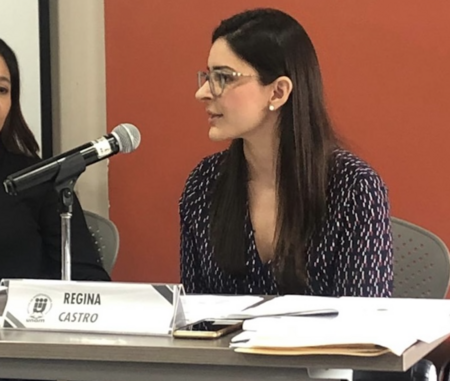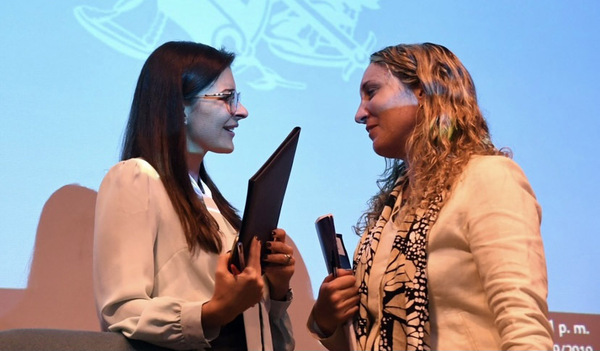Women Who Empower: Regina Castro Traulsen

This story is part of Notre Dame International's series titled "Women Who Empower."

Born and raised in Mexico, Regina Castro Traulsen is the current General Director of the Mexican Supreme Court’s Human Rights Office.
Castro Traulsen started her career working on civil litigation. She always had a strong desire to help people through her education. Civil litigation was, in her opinion, the best way to address and solve people's problems.
In 2010, Mexico went through an important constitutional human rights reformation that established human rights as the structural foundation of the entire Mexican legal system. Since then, judges are required to exercise not only a constitutional control of the Mexican legislation, but also an international control, which means they have the obligation to review in each case that no human right either recognize by the Mexican constitution or by any international treaty signed by Mexico is being violated.
When this restoration happened, Castro Traulsen was working at the Supreme Court of Justice and decided to specialize in the field of human rights. She applied and was the recipient of the 2015-2016 Fulbright-García Robles Scholarship. Together with her husband, they both completed the LL.M. in International Human Rights Law at the University of Notre Dame.
The program gave Castro Traulsen the skills to understand the foundations of human rights. It broadened her perspective of the world and how human rights are handled globally thanks to the academic programming and classmates who were human rights lawyers coming from more than 18 countries.
Through Notre Dame, she won a fellowship at the InterAmerican Court of Human Rights, which enabled her to apply the knowledge she academically gained in her LLM.
When she moved back to Mexico, the unique opportunity to work in the Office of Human Rights at the Court of Justice opened up for her. Castro Traulsen worked her way up and eventually became the head of the Office.
“In Mexico, there are still many internal and external barriers for women in their professional life,” says Castro Traulsen. “Some are more evident while others are subtler. Step-by-step we are tearing them down, even if we still live in a very patriarchal society.”
Even though women often encounter obstacles in their professional lives, the environment in which Castro Traulsen works is very special; her office is composed of 48 people, more than 65% of whom are women. The four area directors and three advisory positions that exist on the Office are occupied by 7 brilliant women.
At the Office of Human Rights, Castro Traulsen and her team work together to disseminates and encourage the implementations of the Supreme Court’s most relevant human rights decisions, as well as international human rights standards through public events, permanent programs, summaries, compilations, online courses, and national competitions, amongst others. In addition, the Human Rights Office is renewing the human rights Protocols issued by the Mexican Supreme Court that are aimed to provide federal judges with a compendium of the national and international standards on different human rights topics such as migrant rights, torture, children’s rights, people with disabilities rights, and indigenous people’s rights.

On November 25th, 2020, on the international day for the elimination of violence against women, Castro Traulsen and her team published the first new Protocol that is entitled Protocolo para juzgar con perspectiva de género and is focused on gender equality.
“Two of my teammates worked on the writing of this protocol, while I took care of revising it,” she says. “Being such a touching subject and being a woman myself, it was very complex to work on it. I remember reading it, revising it, having to take a walk around or a little cry out before going back at it.”
As Castro Traulsen says, “Sometimes some of us can take for granted how privileged we are, while most women still have to face too many gender inequalities in their lives.”
The work that she and her colleagues have completed to publish this protocol pays off as it can make a difference in how women’s rights are judged in Mexico.
During her childhood, Castro Traulsen's parents taught her about the value of compassion and caring for her country and her people. Aware of her privilege, Castro Traulsen felt obliged to educate herself and give back to her country in exchange for what her country does for her every day.
Castro Traulsen made a choice to serve the Mexican people, committing her life and her education to making Mexico a better, more just, and more equal country.
Originally published by at international.nd.edu on August 02, 2021.